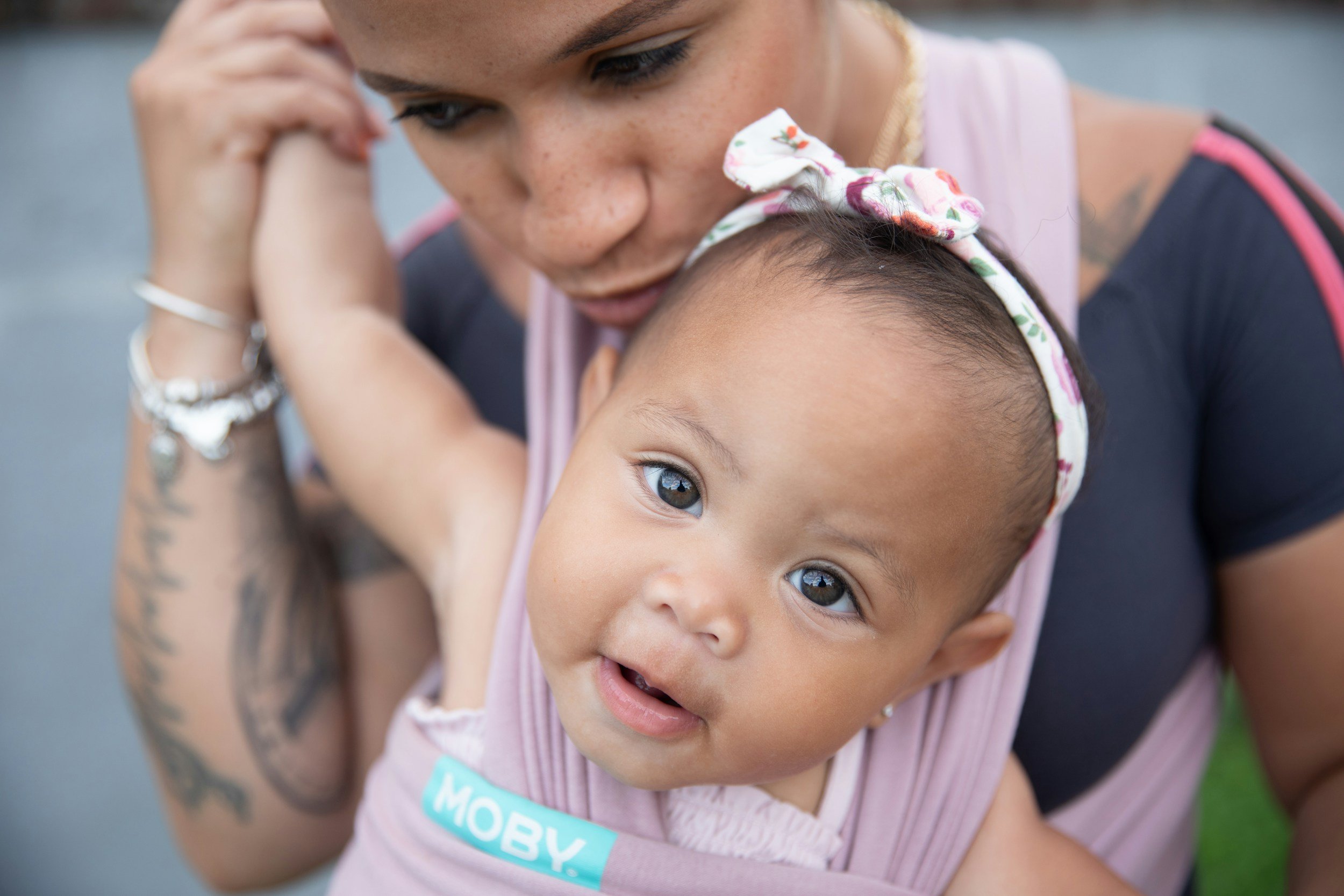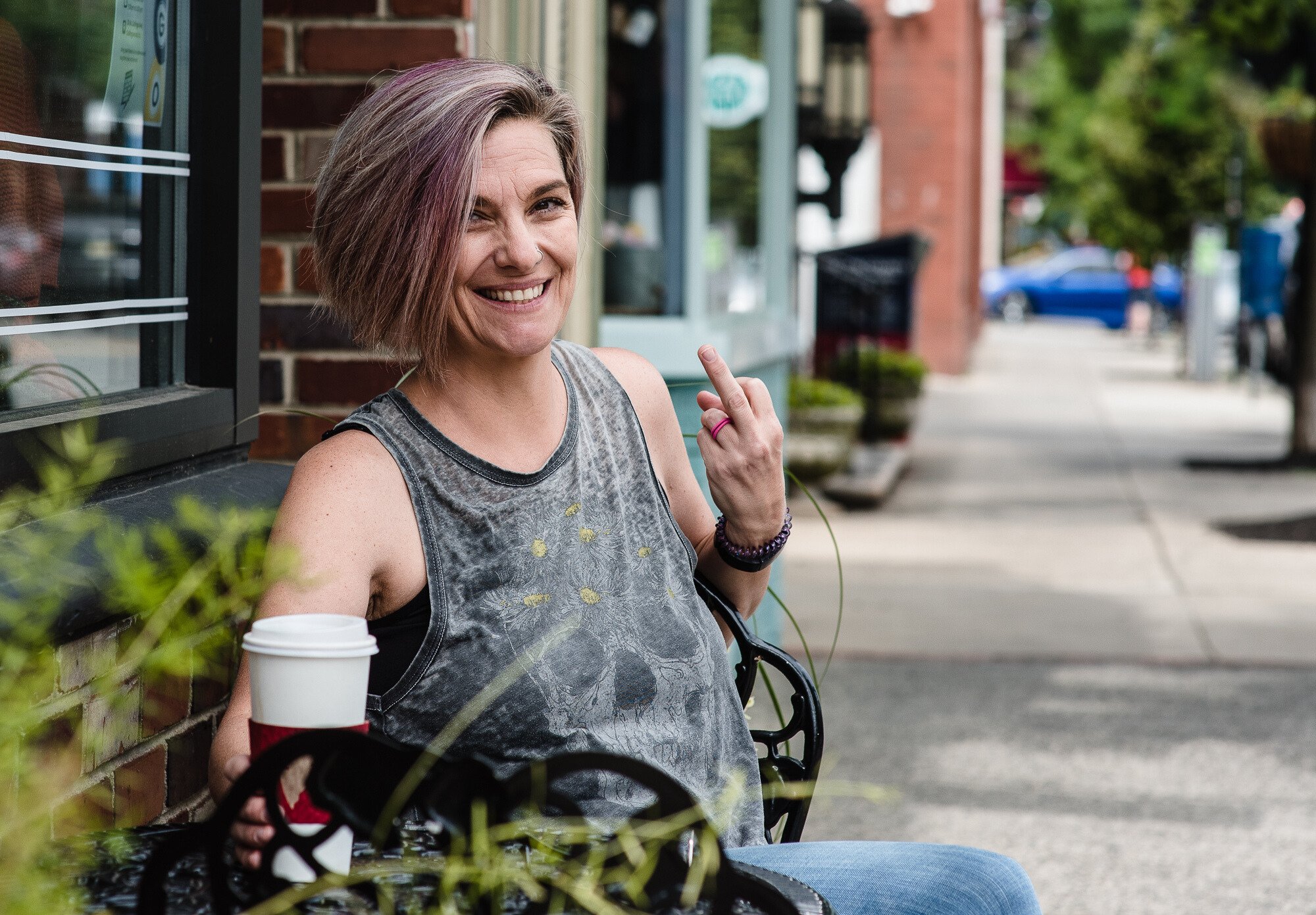
Overwhelmed by Postpartum Life in South Jersey? Here’s What You Need to Know
Postpartum isn't supposed to feel this hard. If you're juggling breastfeeding, sleep deprivation, and partner resentment, you're not alone—and you're not failing. And if you're neurospicy, it can be a thousand times harder. Learn 5 ways to make it through without drowning under society's unrealistic expectations.

How to Simplify Your Postpartum Life: Tips for Overwhelmed Moms
Moms often feel the pressure to do it all, driven by societal standards and unrealistic expectations. For neurodivergent moms especially, this pressure can be even more intense as we navigate a world not designed for our needs. The result? Overwhelm, exhaustion, and burnout before our babies even hit their first birthday.
The key to surviving and thriving is to focus on what matters to you, not what society says is important. This is about building a life that aligns with your values and rejecting the stressors that don’t.

Neurodivergent Motherhood Unveiled
Unlocking the challenges of motherhood as a neurodivergent mom – from undiagnosed ADHD to autism. Discover support, strategies, and community at NeuroSPICY Postpartum – The Membership. Let's manage motherhood together.

Choosing a Safe Placenta Encapsulation Service: 10 Important Questions to Ask
Choosing a Safe Placenta Encapsulation Service: 10 Important Questions to Ask

Perfectionism, Postpartum Anxiety, and Rage
Perfectionism can make the postpartum period tougher for neurodivergent moms, amplifying anxiety and even leading to rage. Learn how to silence your inner critic, build authentic support systems, and parent collaboratively. Remember, you’re already enough—imperfections and all.

Postpartum ADHD
Many women live with ADHD without even realizing it, and the symptoms usually become more apparent postpartum. Oftentimes, ADHD symptoms are mistaken for or lead to anxiety. So let’s talk about it.
ADHD is most commonly associated with children (boys especially), but it can, and often does, persist into adulthood. Many women may have gone undiagnosed because the symptoms tend to manifest differently in females and can be mistaken as stress or hormonal fluctuations. The demands of motherhood can exacerbate these symptoms, which makes it important for moms to be aware of the signs.

FAQ: Is the Placenta Full of Toxins?
As a placenta encapsulation specialist, I spend a lot of time clearing up misinformation and misconceptions. People have all sorts of opinions, from those who are genuinely curious to those who, for whatever reason, are dead set on talking folks out of taking placenta pills. I fully understand that placenta encapsulation isn’t for everyone, but I am fully committed to helping people make informed decisions about how to support themselves postpartum.

Recognizing and Understanding Postpartum Rage
Postpartum rage is a common challenge for new moms, often linked to feelings of overwhelm and lack of support. It’s not a sign of being a “bad mom.” Seeking help, whether through self-care, therapy, or support groups, can make all the difference.

Thanksgiving Reality Check
The time for change is now.
If you’re an expecting or new mom who doesn’t buy into the bullshit, and you want to build a better world for our kids, I invite you to join me in the Fourth Trimester Revolution.

Peeing Your Pants Isn’t Normal OR Inevitable
In many developed nations, postpartum care includes comprehensive support for women's health, and this often includes pelvic floor therapy. PFT addresses the physiological changes that occur during pregnancy and childbirth, particularly the stress placed on the pelvic floor muscles. These muscles play a pivotal role in bladder and bowel control, and when weakened or damaged, can lead to issues like urinary incontinence.
Unfortunately, in the US, there's been a historical lack of emphasis on this aspect of maternal health, and honestly, it's infuriating.

Placenta Pills vs. Zulresso - The Battle for Postpartum Mental Health
It's flipping awesome that there's now a medication with proven efficacy in treating postpartum depression (PPD). However, when we consider the potential benefits of placenta encapsulation in preventing PPD, it's kind of infuriating to see the lack of research in this area.
Let’s consider the reasons behind it.

Where’s The Research on Placenta Pills?
Placenta encapsulation, one of my specialties, is really not as wild as it seems. It involves taking a new mom's placenta, dehydrating it, grinding it into a powder, and encapsulating it for her own consumption. This age-old practice has been around for centuries but has increased in popularity among mainstream folks over the last decade or two, thanks in part to Kim Kardashian and the power of social media.
Many of us who have tried it swear by the efficacy of our placenta pills. Yet, skeptics scream about its safety and lack of scientific evidence – even though not a single woman or baby has been harmed by it.
In a world where society often leaves new moms to navigate motherhood alone, many are willing to try anything, especially something created by their own bodies, to enhance their postpartum experience. It's a form of empowerment, giving moms the choice and control over their own well-being.

Reclaiming Motherhood
Society has abandoned us. So I say, we abandon it. F*ck society & its norms. We’ve tried to meet the standards, but where has it gotten us? To start, it’s landed us in a maternal mental health crisis, one in which at least 1 in 5 of us are struggling with anxiety/depression. ONE IN FIVE.

Perfectly Imperfect Disorganized Mom
It's okay to not have it all together.
(In fact, it’s quite normal.)

Time is Measured in Minutes, Not Money: The Shared Labor of Parenthood
Your worth is non-negotiable. You deserve to live a life where the load is shared equally, where you're supported, and where your partner is as invested in your family's well-being as you are.

Postpartum Anxiety or Postpartum Betrayal? Motherhood in the Modern Era
Dive into the reality of modern motherhood as I challenge conventional norms and shed light on postpartum anxiety. I argue that it's not just about coping but understanding and taming this beast. With the right support and insights, I empower new parents to navigate this challenging phase with resilience, peace, and a middle finger to societal expectations.

The 6-Week Postpartum Checkup Is Total Bullshit
The United States drops the ball when it comes to postpartum care and perinatal mental health and it's time for a change. Here’s why I think the 6-week check-up is a joke.

Postpartum Yoga for Moms and Babies
In a past life, I was a yoga instructor and dedicated yogi. These days, my daily yoga practice often consists of deep breathing while sitting at a red light.
The good news is that you can make yoga a simple and accessible part of your daily “routine” (I use that term lightly when referring to motherhood, because as we know, the best laid plans) even if you’ve never practiced yoga a minute in your life, even with a newborn in tow. And yes, even if your newborn needs to be attached to you at all times.
Yoga can be a game-changer for postpartum moms and babies, with a focus on simplicity, mindfulness, and its benefits for moms with ADHD or sensory issues.

Navigating Postpartum with ADHD: Challenges, Risks, and Strategies
Becoming a mom is mind-blowingly incredible, but when you have Attention Deficit Hyperactivity Disorder (ADHD), postpartum life can be uniquely challenging. The added responsibilities and changes can be overwhelming — and don’t even mention the lack of time to recharge. I’m not going to sugarcoat this — ADHD might affect your postpartum experience, and it increases your risk for Perinatal Mood and Anxiety Disorders (PMADs).

Rainbow Babies and Postpartum Anxiety
I'm still scared every day.
My babies are 13 and 9 now and they are currently on an airplane without me. And I’m f*cking terrified. And I don't mean regular terrified.
I mean full-blown anxiety terrified.
Even with all the therapy and all the work I’ve done. Even with medication and meditation. I am still terrified.
Because I know that babies can die. And I’m sorry, but that’s terrifying.